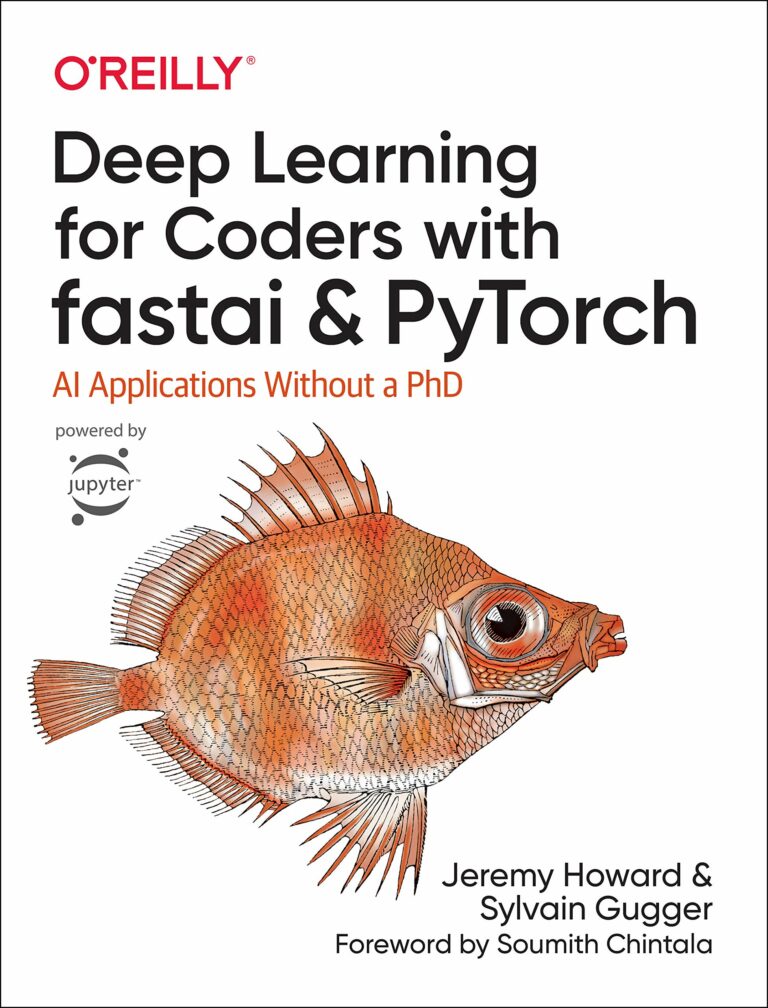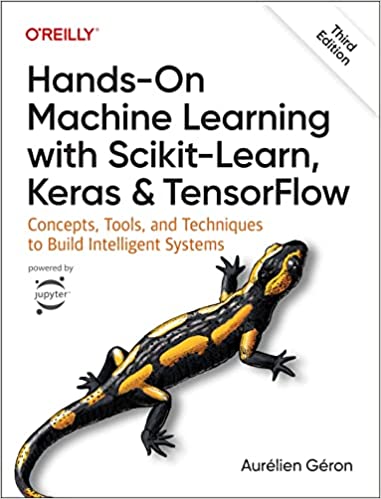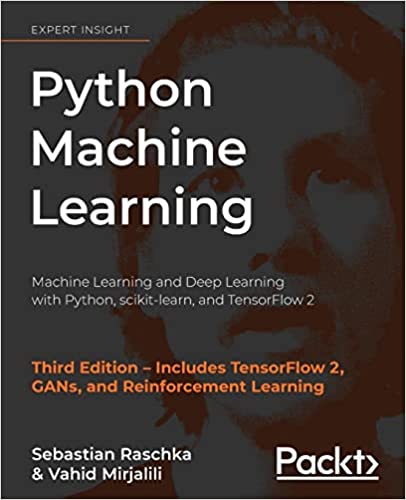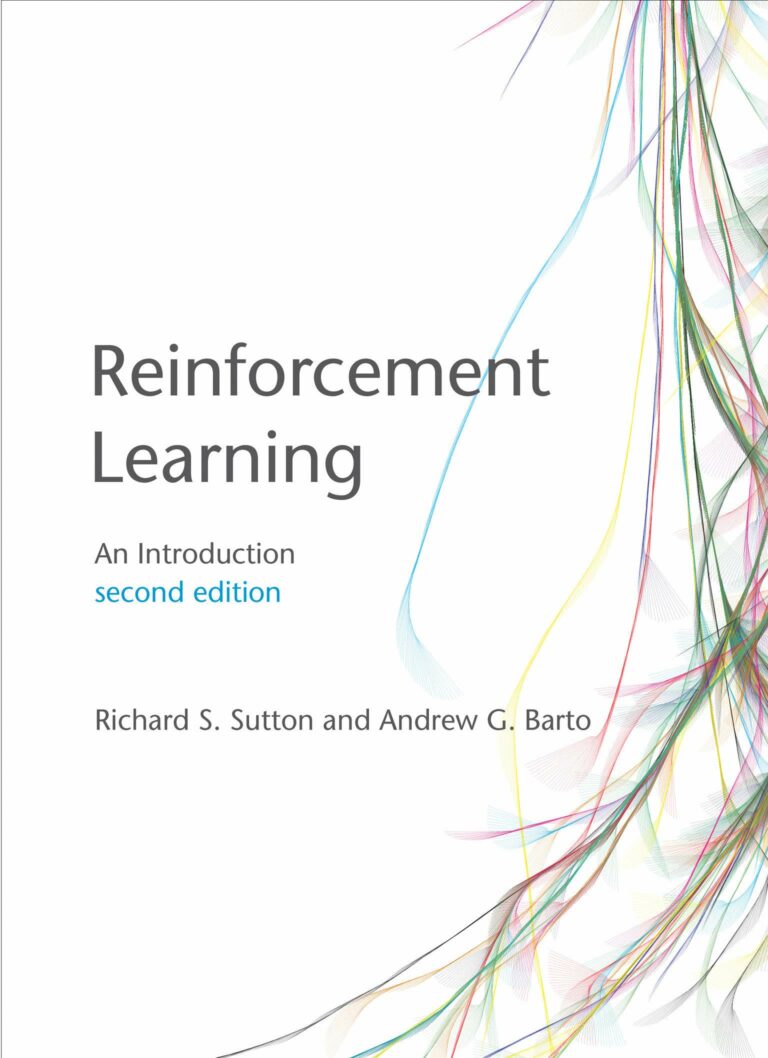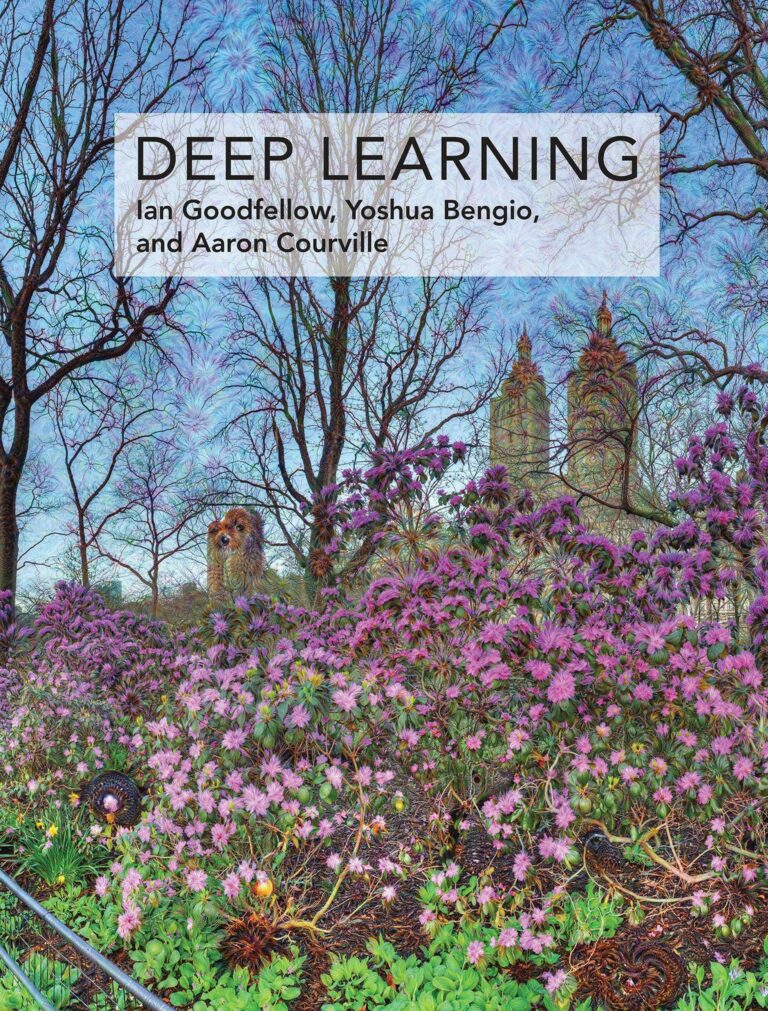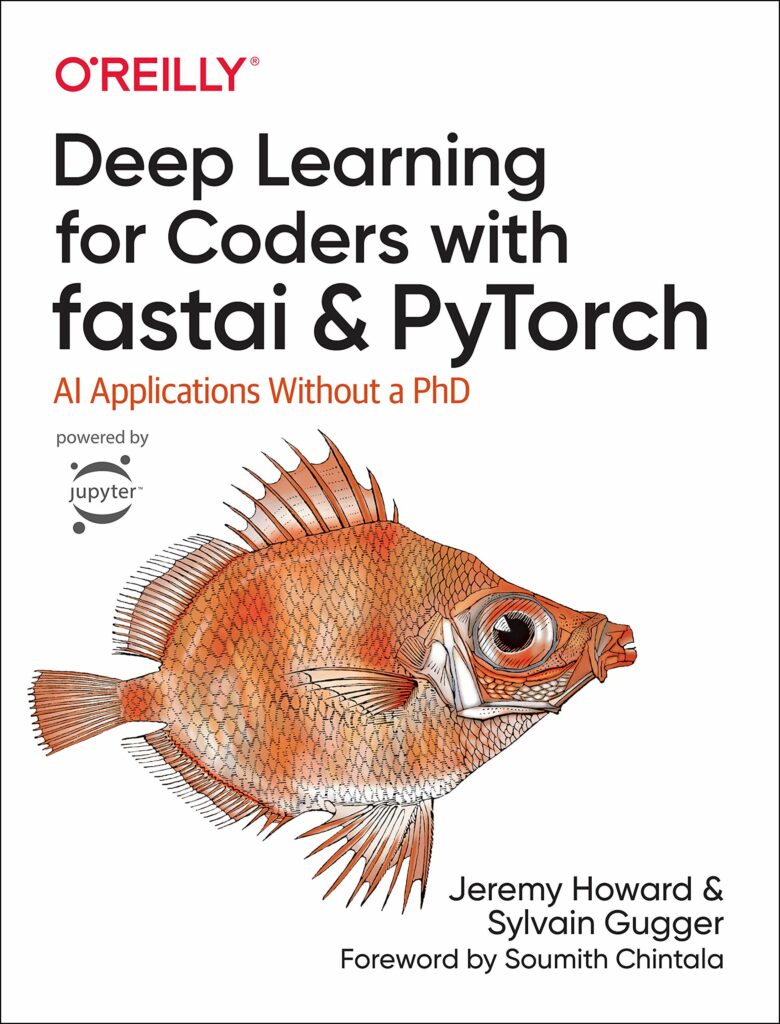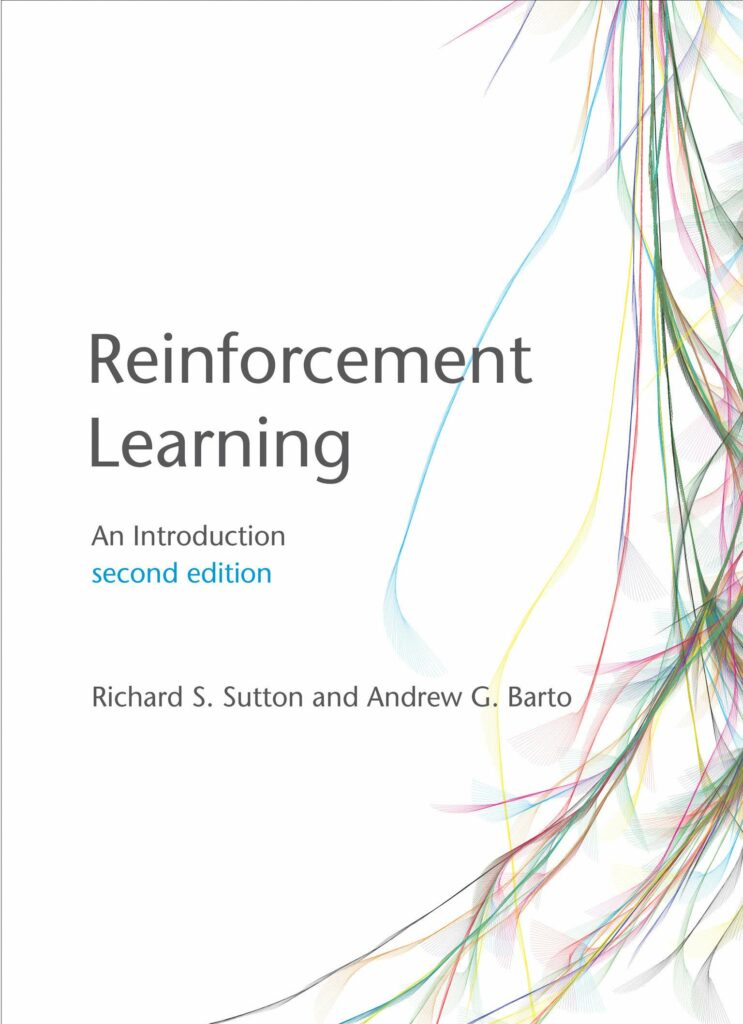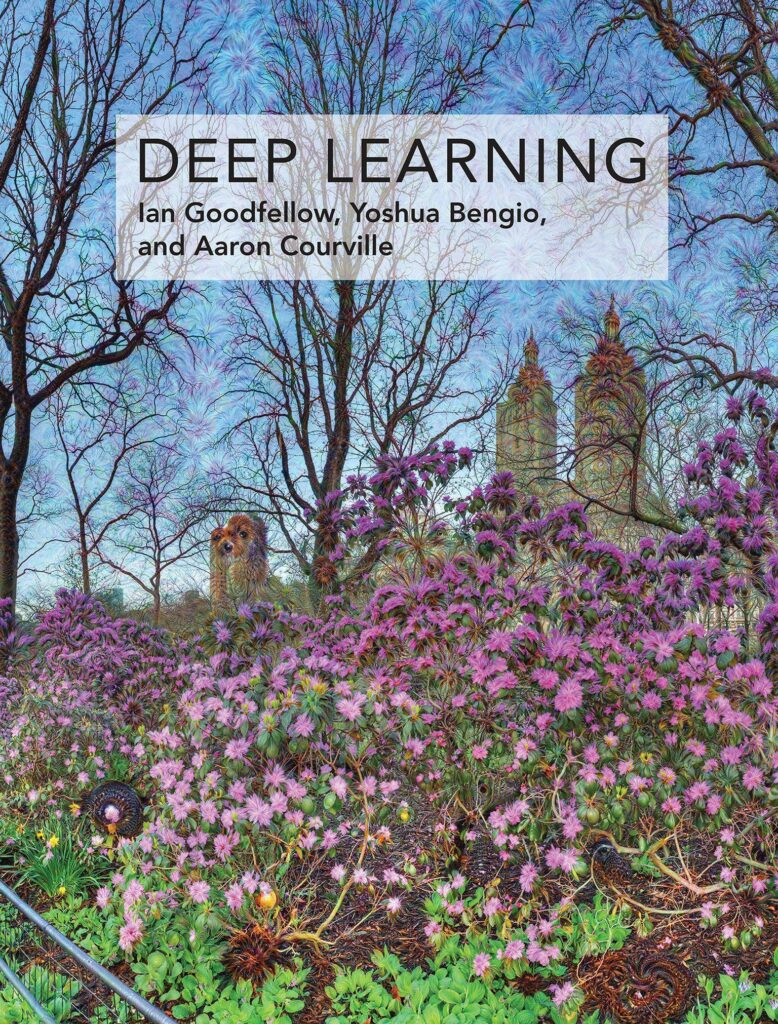We have curated a list of the top 5 AI books published recently (after 2018) to gain a technical perspective on artificial intelligence and machine learning.
A must-read for those who aim to grasp the ins and outs of this era’s most disruptive technology through practical insights!
AI in Practice for a Strong Start
Deep Learning for Coders with fastai and PyTorch
2020 – 350 pages – by Jeremy Howard and Sylvain Gugger
Full Title: Deep Learning for Coders with fastai and PyTorch: AI Applications Without a PhD
This book offers a hands-on introduction to deep learning using the fastai library and PyTorch, featuring concrete examples and clear explanations tailored for beginners.
A bestseller on the subject.
About the Authors

Jeremy Howard is an AI researcher and co-founder of fast.ai.

Sylvain Gugger is also an AI researcher and a member of the fast.ai team.
AI Books for Informed Readers
Hands-On Machine Learning with Scikit-Learn, Keras, and TensorFlow
2022 – 850 pages – by Aurélien Géron
Full Title: Hands-On Machine Learning with Scikit-Learn, Keras, and TensorFlow: Concepts, Tools, and Techniques to Build Intelligent Systems
This book delves into key concepts of machine learning and deep learning using Scikit-Learn, Keras, and TensorFlow, offering practical techniques for building intelligent systems.
Arguably the best AI book reference.
About the Authors

Aurélien Géron is an AI expert and recognized author in the field of machine learning.
Python Machine Learning
2022 – 772 pages – by Sebastian Raschka and Vahid Mirjalili
Full Title: Python Machine Learning: Machine Learning and Deep Learning with Python, scikit-learn, and TensorFlow 2, 3rd Edition
This book provides a comprehensive introduction to machine learning and deep learning with Python, using scikit-learn and TensorFlow for practical applications.
In line with the previous work, strong experience in Python is highly recommended to make the most of this bestseller.
About the Authors

Sebastian Raschka is a researcher in data science.

Vahid Mirjalili is an AI researcher.
Reinforcement Learning: An Introduction
2018 – 552 pages – by Richard S. Sutton and Andrew G. Barto
Full Title: Reinforcement Learning, Second Edition: An Introduction
This AI book is a comprehensive introduction to reinforcement learning, encompassing key concepts, algorithms, and applications of this learning method.
In line with the previous work, strong experience in Python is highly recommended to make the most of this bestseller.
About the Authors
Richard S. Sutton and Andrew G. Barto are renowned researchers in the field of reinforcement learning.
AI : God mode
Deep Learning
2016 – 800 pages – by Ian Goodfellow, Yoshua Bengio and Aaron Courville
Full Title: Deep Learning
This AI book is a comprehensive reference on deep learning, covering fundamentals, neural network architectures, learning algorithms, and advanced applications.
While slightly less recent than others, it is still considered one of the best resources for AI and machine learning experts.
About the Authors
Ian Goodfellow, Yoshua Bengio, and Aaron Courville are leading researchers in the field of deep learning.
We are currently working on two new articles:
- The top 5 AI books, exploring both transformation and sociological consequences.
- The top 5 works on the use of artificial intelligence in business.
The main themes surrounding artificial intelligence.
Artificial Intelligence (AI) is a vast and ever-evolving field, with numerous major topics associated with it. Here are some of the key subjects surrounding AI:
- Machine Learning: At the core of AI, machine learning involves creating computer models capable of learning from data and making decisions or performing tasks without explicit programming.
- Deep Learning: A subset of machine learning, deep learning focuses on using deep neural networks to solve complex problems, widely applied in areas such as computer vision and natural language processing.
- Natural Language Processing (NLP): NLP focuses on machines understanding, generating, and manipulating human language, including automatic translation, text classification, and text generation.
- Computer Vision: Concerned with machines’ ability to interpret and understand images and videos, used in object recognition, face detection, augmented reality, etc.
- Robotics: Integrating AI into robotics enables robots to perform complex tasks autonomously, from navigation to object manipulation.
- Ethics of AI: This topic explores ethical questions related to AI use, including the responsibility of autonomous systems, algorithmic discrimination, privacy, and transparency.
- AI in Healthcare: AI is increasingly utilized in the medical field for diagnosis, drug discovery, medical record management, etc.
- AI in Business: AI is applied across various sectors, from supply chain management to data-driven business decision-making.
- AI in Education: AI is used for personalized teaching, automated assessment, and the creation of educational content.
- AI and Automation: Automating repetitive tasks and processes is a crucial aspect of AI, with implications for employment and productivity.
- AI and Security: AI is used both to enhance cybersecurity and as a potential threat, particularly in the field of cybersecurity.
- Evolutionary AI: Some researchers explore AI approaches inspired by biology to create systems capable of self-learning and adaptation.
- General/Artificial Intelligence (AGI): AGI aims to create AI systems as capable as human intelligence in a wide variety of cognitive tasks, an area of ongoing research.
- The Future of AI: Prospective discussions include technological singularity, superintelligent AI, and the long-term societal impact of AI.
Each of these subjects has multiple facets and continues to evolve as AI technology progresses.
